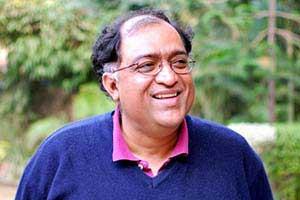The Political Economy of Public Sector Reform, Evidence from Teacher Hiring in Pakistan
Good governance and effective policy are essential for sustained economic growth. Pakistan and other countries are struggling to transition from patron-client political systems, where politicians win office by providing targeted benefits to supporters at the expense of broader collective benefits, to performance-based systems. Many potential transparency-promoting public sector reforms in emerging democracies like Pakistan have two features, they can: (1) improve service delivery; and (2) constrain the rents local politicians have to dispense as patronage. Political economy models suggest the former should increase incumbent vote-share, while the latter should reduce it.
This project will adjudicate which effect prevails under different circumstances by studying the political consequences of a major programmatic teacher hiring reform in late-2008 by the government of Punjab, which provides a unique opportunity for such analysis. In December of that year, the government of Punjab (pop. ~100M) implemented a transparent recruitment process for hiring all new public school teachers. Because of the reform, teaching assignments are now based entirely on a publicly available composite index calculated from applicants’ expressed job preferences, professional qualifications, and high school and college test scores. Prior to this, politicians interfered heavily in the hiring process, frequently directing appointments to political supporters. The reform significantly reduced politicians’ discretion over teacher hiring and created opportunities for well-qualified but politically-unconnected candidates to compete for teaching jobs by institutionalizing a rule-based meritocratic hiring system.
Understanding how the reform influenced educational outcomes, whether voters reward any resulting improvements, and, if so, which voters did so will provide vital evidence on politicians’ incentives to invest in better governance, and relinquish their patron-client support systems. From a policy perspective, such evidence is helpful for understanding how to encourage young democracies to grow into transparent, accountable, and effective systems. Broadly speaking, we hope to learn more about how to incentivize welfare-enhancing reforms that are perceived as being politically costly in the near term.
From an academic perspective, why governments voluntarily make the shift from patron-client systems towards performance-based competition is a central issue in political economy. By studying the political consequences of this reform, we will learn more about when and where such efforts can be a net benefit to local politicians, and thus be sustainable in the absence of external pressure.
For Pakistan, quantifying the reform’s impacts may create pressure for similar changes outside Punjab and in departments other than education.




